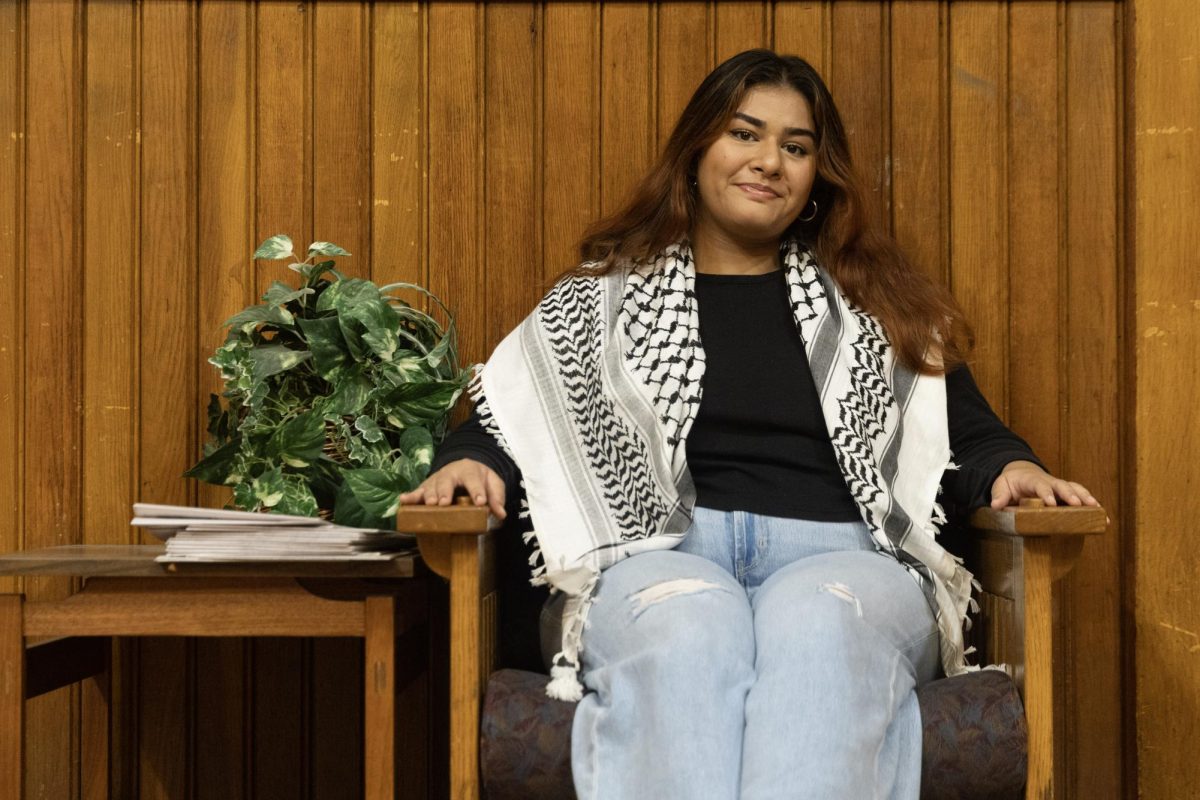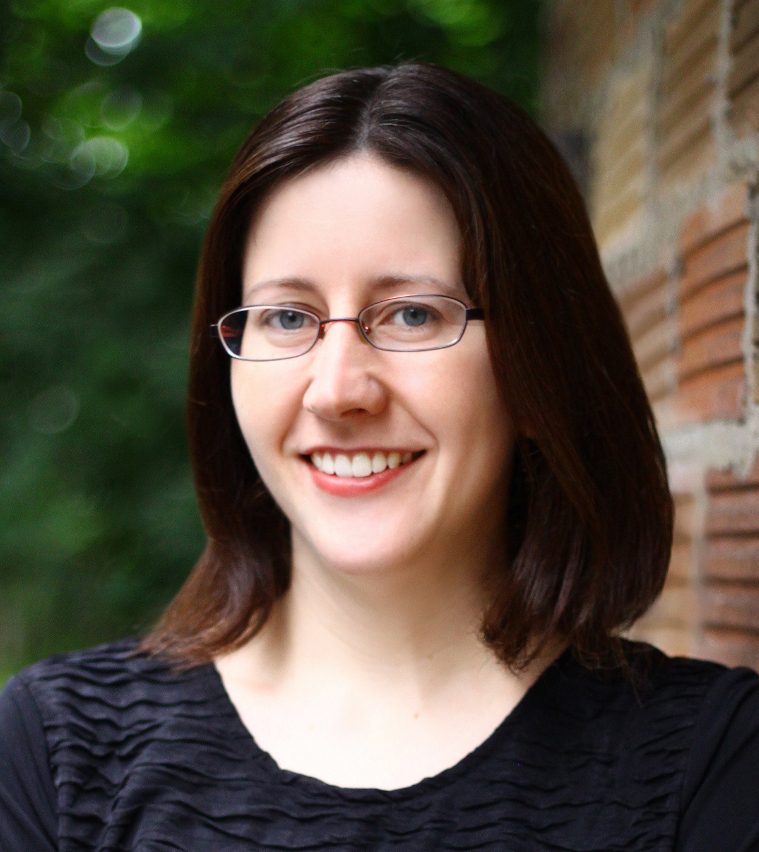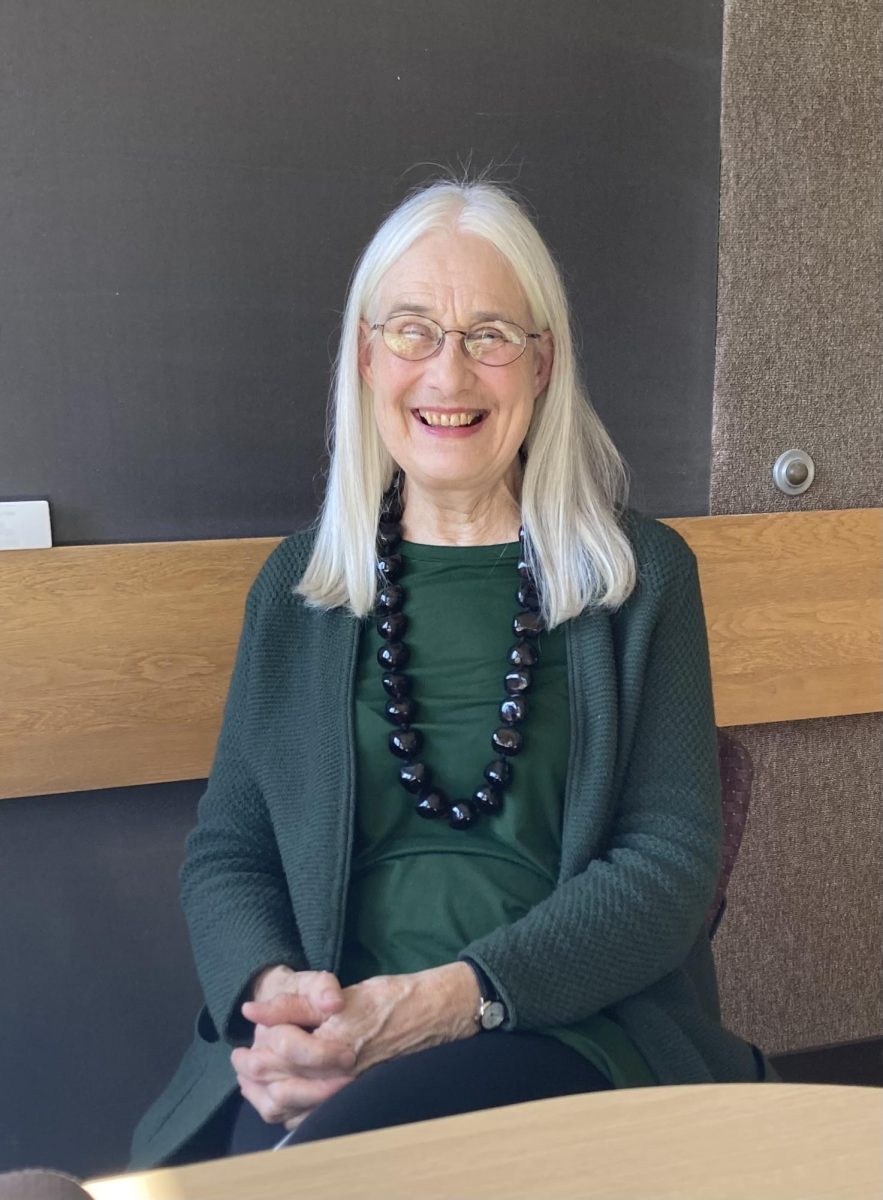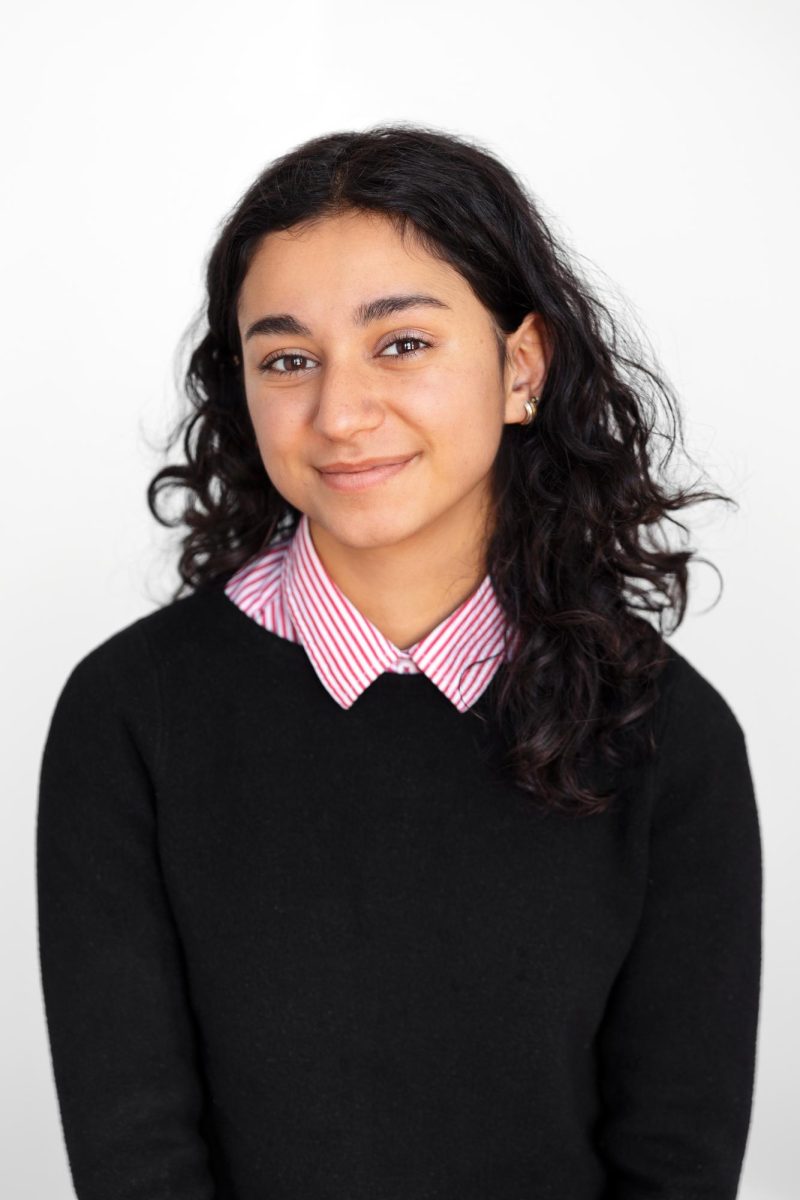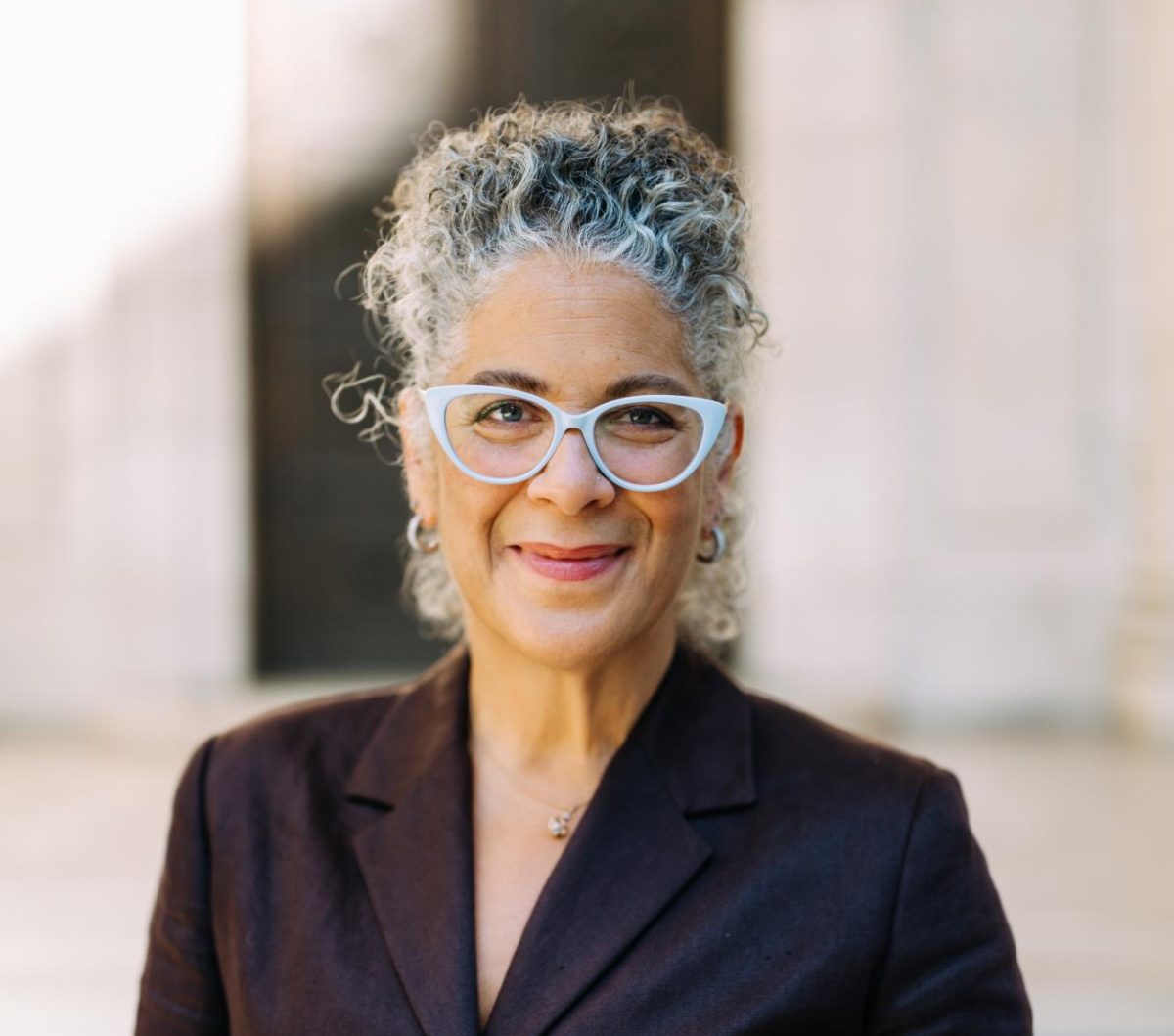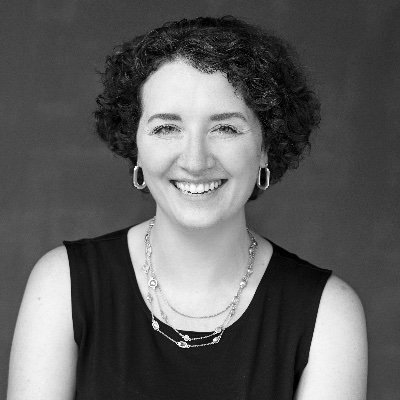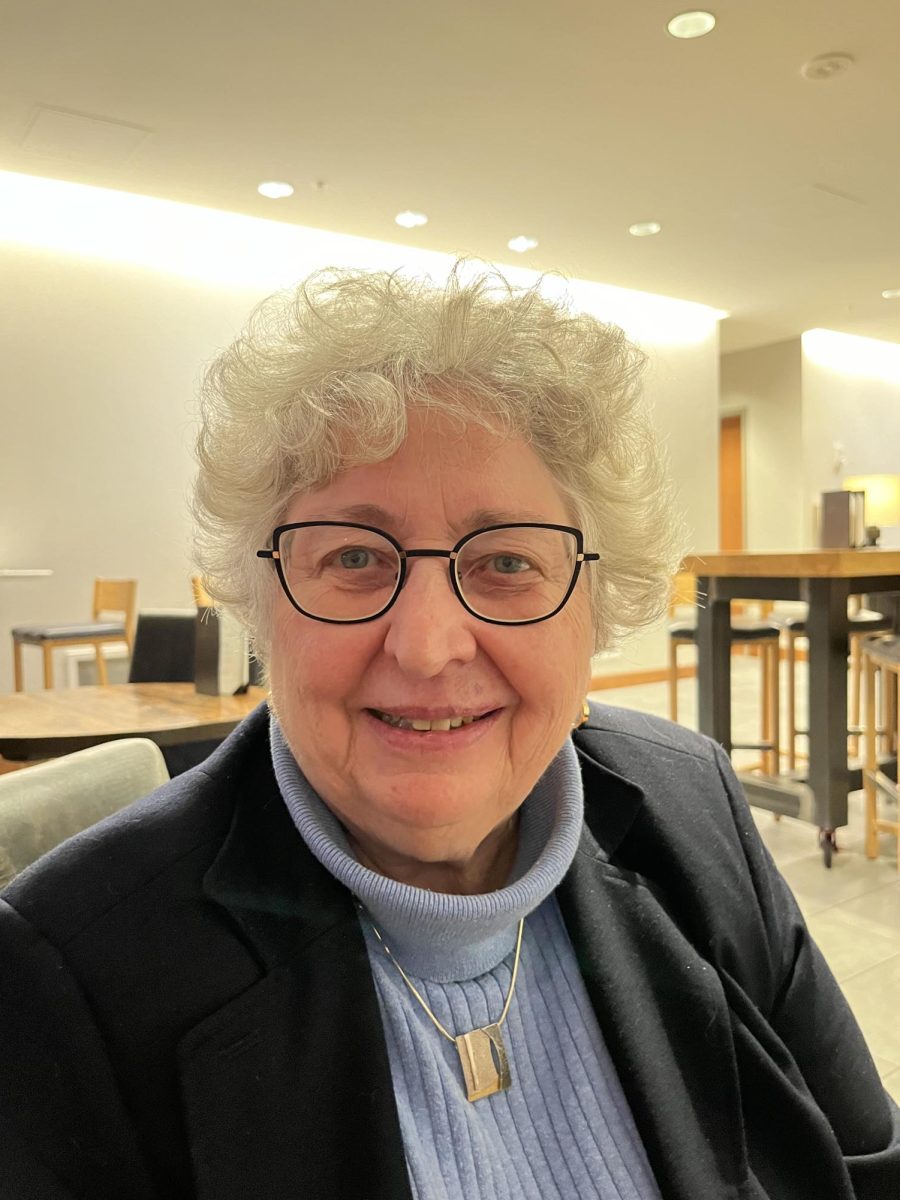College third-year Juwayria Zahurullah is a co-chair of Oberlin Students for a Free Palestine, and has helped organize numerous events with the organization over the last few years. Zahurullah also acts as Racial Equity Committee Chair for Student Senate and is a co-chair for Oberlin’s Muslim Student Association. On Saturday, Nov. 23, Zahurullah organized a Zoom conversation with Gazan journalist and psychologist Shaza Abu Dayeh.
This interview has been edited for length and clarity.
Can you describe your connection to Students for a Free Palestine?
In SFP, I would consider my role as a co-chair. In the organization we try not to have a super centralized leadership, but I do share a lot of the leadership responsibilities with a few other board members. I’ve been a member of the organization since I was a first-year. During my first year, it wasn’t super active, and then, obviously last fall semester around October, that completely changed. I and a few of the members that were regularly in attendance in the previous semester were planning small vigils and things to honor the martyrs of Palestine. As that slowly ramped up and gained more traction, people started talking about it more on campus, and we started moving more toward action and following the calls from national Students for Justice in Palestine to push our institution for divestment.
What do you feel has been the most impactful work or actions that you have done?
I would say undoubtedly, the most impactful thing that we’ve done over the last couple semesters is our fundraising work. Specifically in May, around the time of the People’s College, there was a huge shift in a lot of our members’ focus to doing fundraising work, and specifically in that work, reaching out to Palestinian people living in Gaza — getting to know them, hearing their stories, and finding ways to directly and consistently support them. I feel like a lot of people in SFP have dedicated themselves to building connections with families and individuals that they’re fundraising for. There’s no way for me to go back and count, but we’ve easily raised tens of thousands of dollars for families, whether through on-campus fundraisers or virtual fundraisers.
Could you talk about the importance of fundraising as opposed to direct action?
That’s something I think about a lot. I’ve read a lot of work in the last year, about this duality between the need to take direct action to end the genocide that’s happening versus the need for support and monetary donations for families. Over the last year, I found myself really questioning what the impacts of my actions were on this rural, isolated campus to the people in Palestine that I’m advocating for. Even though I still do believe that direct action and protesting is very important, I was struggling to draw a material connection to how this was helping the people that I cared about. I think focusing on the donation aspect creates this material connection for people — realizing the luxuries that you enjoy here exist because you’re at an advantage, and that you have the ability to improve somebody else’s situation while not putting yourself at a grave disadvantage.
Tell me about the event that you organized last week with the Gazan journalist Shaza Abu Dayeh.
Shaza is a deaf psychologist. She has two degrees: in psychology and deaf specialization in communication. She was set to be the first deaf psychologist in the Gaza strip. Especially being a Psychology student, I wanted this event to be attended by people in the Psychology department at Oberlin because I wanted people to recognize that Shaza is a peer of all of us. There’s very little that separates us or completely disconnects us as academics from her. And I just find her such an incredibly inspiring person, such an intelligent person, and I wanted people to meet her and hear from her and hear her story.
Every day, new GoFundMes are created. There are tens of thousands of GoFundMes circulating right now, and many of them are very far from their goals. What I realized is I would hear a lot of people saying, “I hesitate to donate to one fundraiser because in my head I’m neglecting all the other fundraisers.” It leaves people with really this impossible choice of feeling like, “How can I make a moral choice of who I should donate to?” I don’t blame anybody for struggling with that choice. But I think what really contributes to that is the constant dehumanization of Palestinians and people seeing this body of displaced people as an indistinguishable mass, not individual lives that have been destroyed.
I believe that bringing attention to one story — an incredibly rich, inspiring story — would work against this dehumanization effect and cause people to have more empathy for this individual person and her family, for what she and they have gone through, rather than just the generalization of the tragedy of Palestinians. My driving hope for the event was that taking time to highlight her specific life and experience would cause people to appreciate her story more and feel more compelled to donate to her.
Shaza was ultimately unable to join, correct?
The event was scheduled for Saturday at noon, and at around 10:30 a.m., she messaged me and said that her brother had been injured in an airstrike and that she and her sister would not be able to join the Zoom call because they were at the hospital, which was devastating.
Even though people weren’t able to hear her speak live, I feel like that still had a really deep impact on those that attended. Even the things that she said in the video were incredibly moving — her talking about her children and just all these different things that she had experienced in her life as a mother and as a daughter and a sister.
What are some of the biggest challenges that you have faced over the past year in organizing?
It’s so weird, because I even now struggle to consider myself an organizer. I specifically feel like I have a lot of anxiety around planning escalated actions. I don’t even feel like it is necessarily my driving motivation in organizing things. As somebody who felt very strongly about the Palestinian struggle, who has been informed about it from a young age, in October 2023 I felt very empowered to share what I believed was my truth and what I believed was an urgent call for justice with my student body. It very quickly pushed me into a position of being an organizer, which at times, I don’t feel necessarily aptly describes me. But at the same time, I’m grateful for all the ways that it’s connected me to like-minded people on campus and how I’ve made so many incredible friends and connections and been inspired by so many, incredibly empathetic, radical individuals. And even though, for the most part, these are all students that don’t have any formal organizing experience, we’ve still been able to come together and put together very powerful events.
In the sense of challenges, I think it’s definitely highlighted challenges I feel as a Muslim student at Oberlin. There’s a lot of criticism that I’ve heard that SFP is a very white organization. So for me coming into that, it was a really odd thing to grapple with because to some extent it is true, but at the same extent, I don’t think that members of SFP being majority white discredits any of the work that happens. I think that a lot of times, I felt that my identity or my presence was tokenized in support of SFP not being a white organization, and that was really hard for me to get around. I think most of my frustrations are just with bureaucratic things though, like through administration and a lot of frustration with every little project and event and display being scrutinized.
What do you see the role of colleges being right now in the face of the conflict?
I think that in a conversation about divestment, obviously the focus is about figures and what will be lost and gained in profit. But the purpose of this tactic of protest is a rhetoric shift. And it was very similar to that of the divestment campaigns during the South African Apartheid. It was more the rhetoric shift of institutions across the country being empowered to take a stand against some injustice. I think that’s the role that colleges and universities play across the country in this case as well.
If colleges and institutions were willing to take a principled stance against occupation and genocide, the narrative and how people are talking about it would shift completely and it could impact how policy is written about this topic. I believe that institutions of learning like Oberlin and other colleges across the country have a responsibility of contributing to the overall ways that things about Palestine are spoken about.
How much do you see that responsibility lying with administration as opposed to with students?
I think that the major responsibility of an administration right now is to make sure that they are not censoring their students, that they’re upholding free speech and the rights of students to protest and dissent. When it becomes a very solid bureaucratic thing that it’s hard to shift the goalposts on, I think the responsibility lies more in the students to take back the narrative of their institution and do things like direct action and protesting to express that as students that make up an institution, this is what we stand for — we don’t stand behind the very placated statements that our college makes. I think that students at colleges and universities across the country are definitely doing that in a way that is taking back the narrative of their institution.
Any final thoughts?
I would say as a closing statement, I realize that the operations of Oberlin SFP are far from perfect, and I realize that there are interpersonal issues and disagreements about how things run, but I truly believe that the issues that we have as an organization on a college campus are not far at all from the issues that other college organizations are facing. But I do believe strongly that we have one of the most dedicated, caring student bodies when it comes to taking action for Palestine. It’s been incredibly heartwarming to see how people have come together so strongly and so unwaveringly for things like fundraising for Palestinians, and how people now see the importance of speaking with and humanizing Palestinians. I’m really proud of Oberlin SFP for that, and I hope that it has a greater impact on other SJPs throughout the country. I’m really proud to be working in SFP, and there’s nothing I would have rather been doing with my time at Oberlin.


